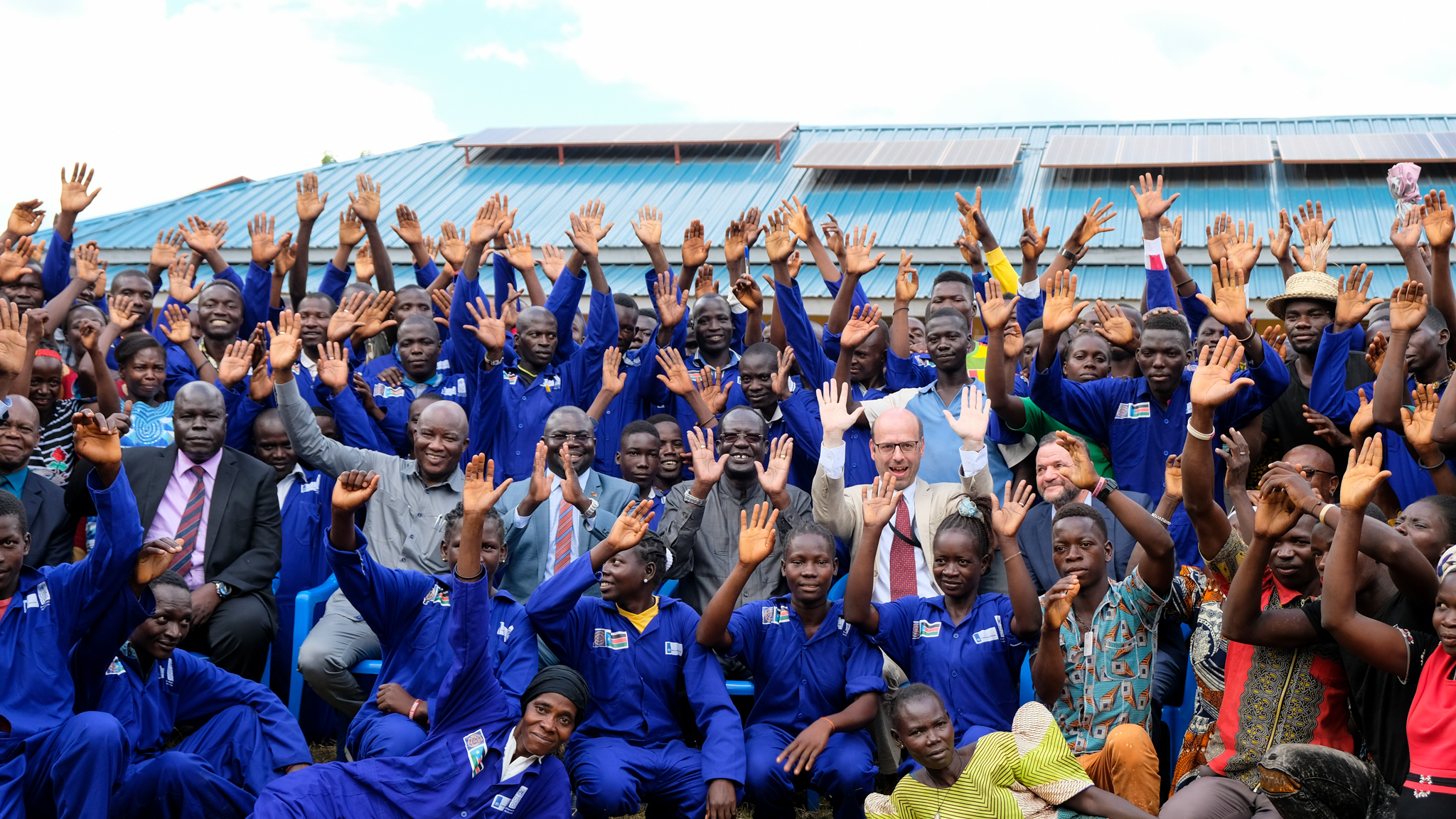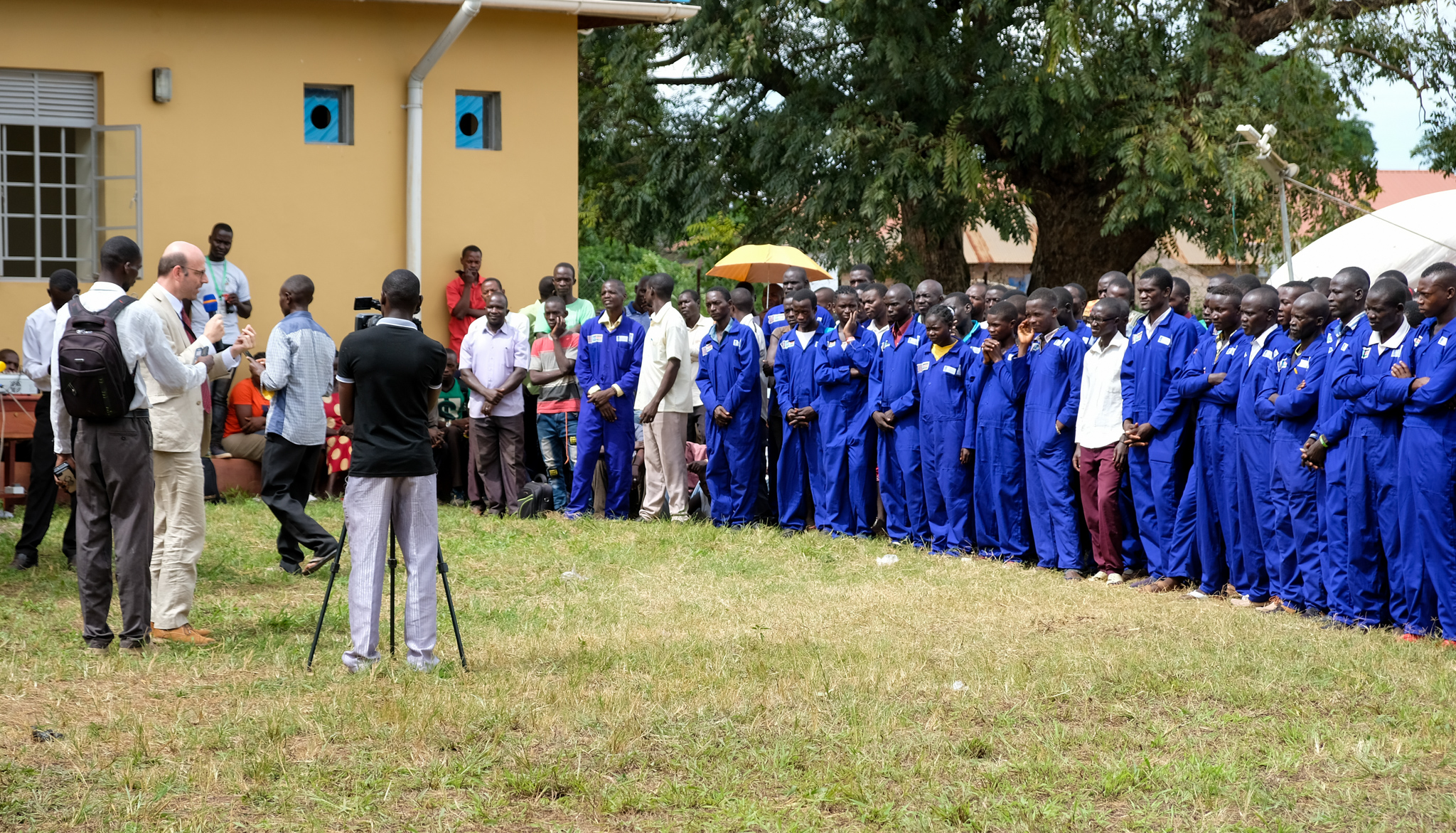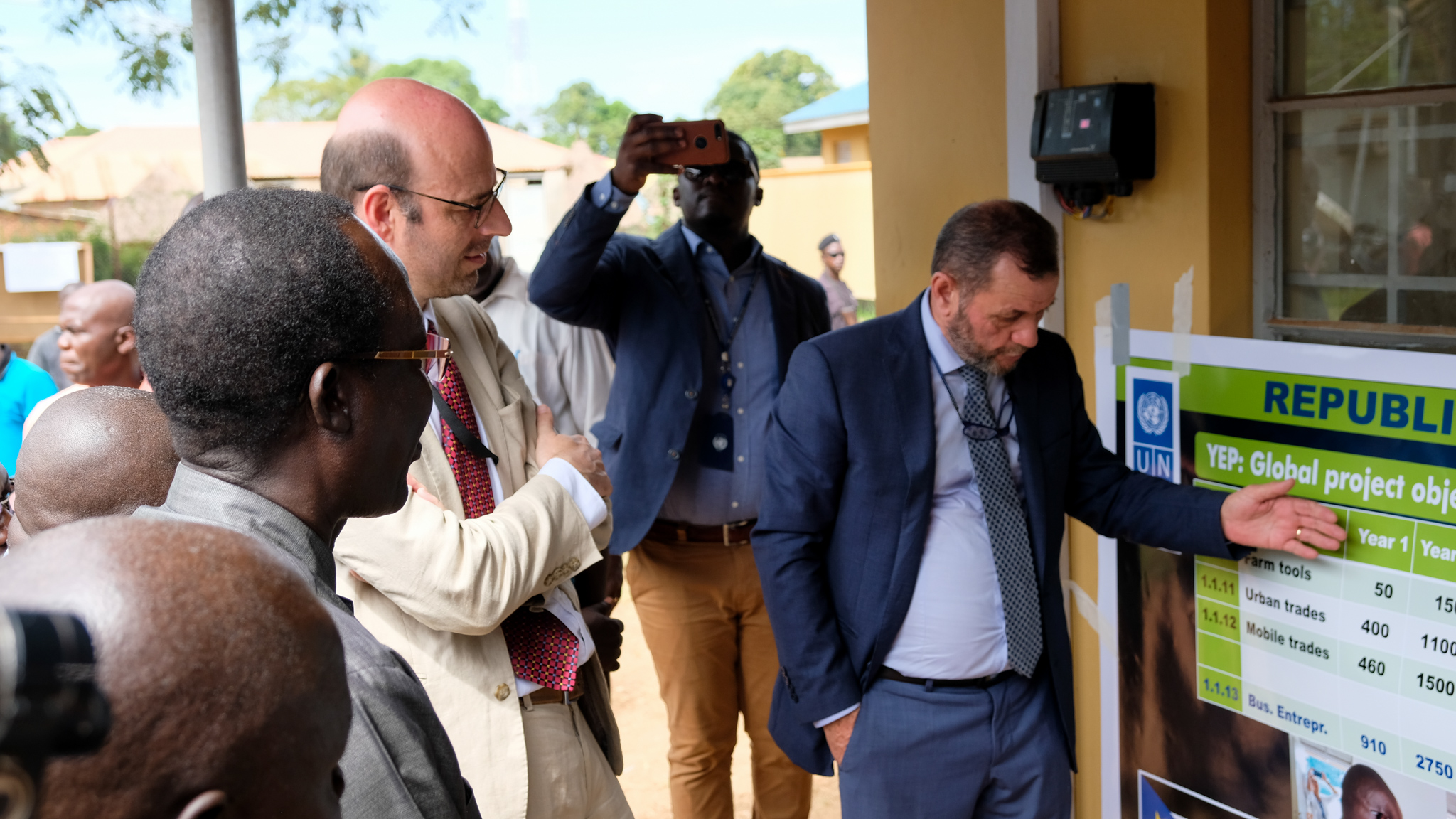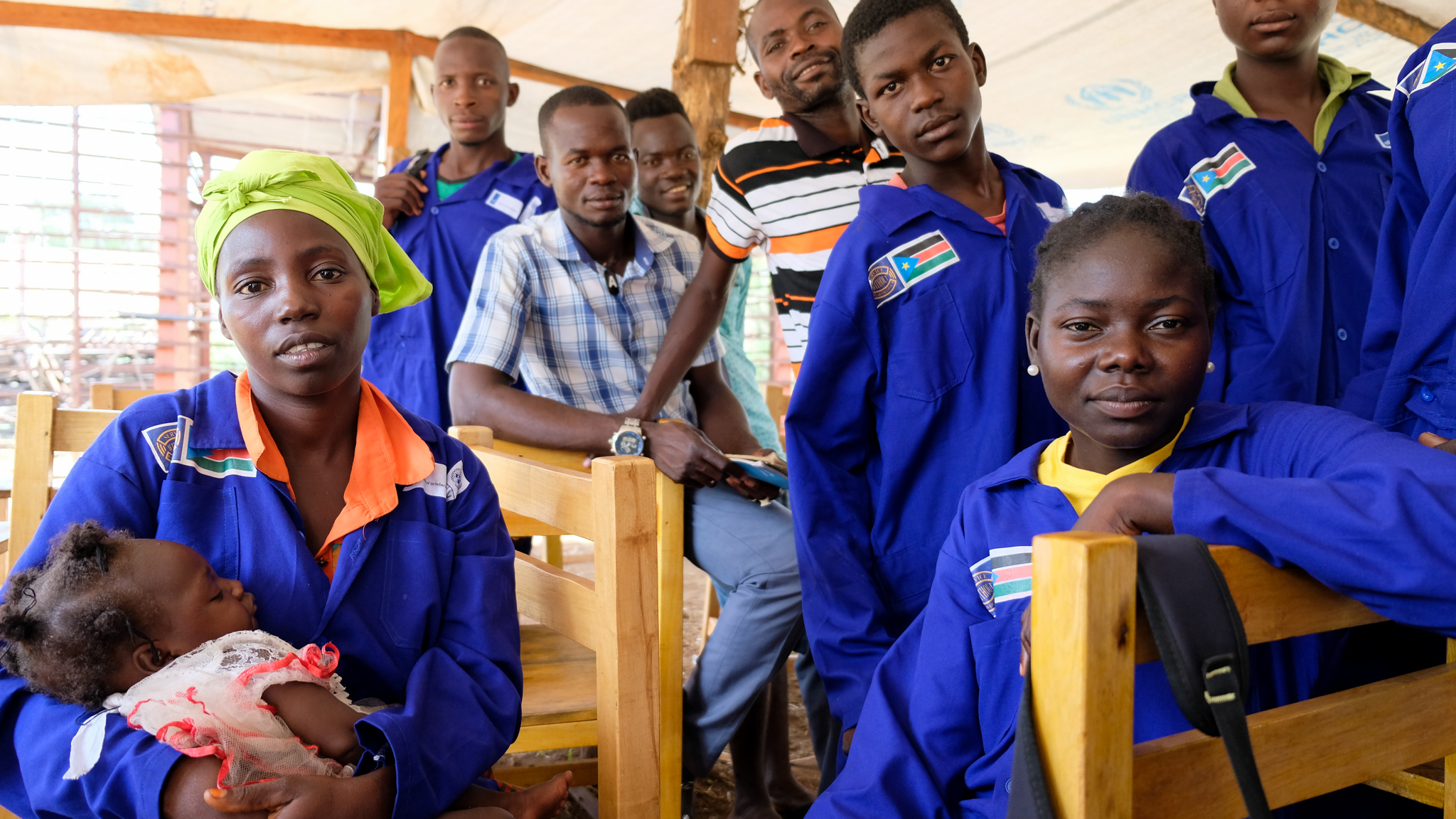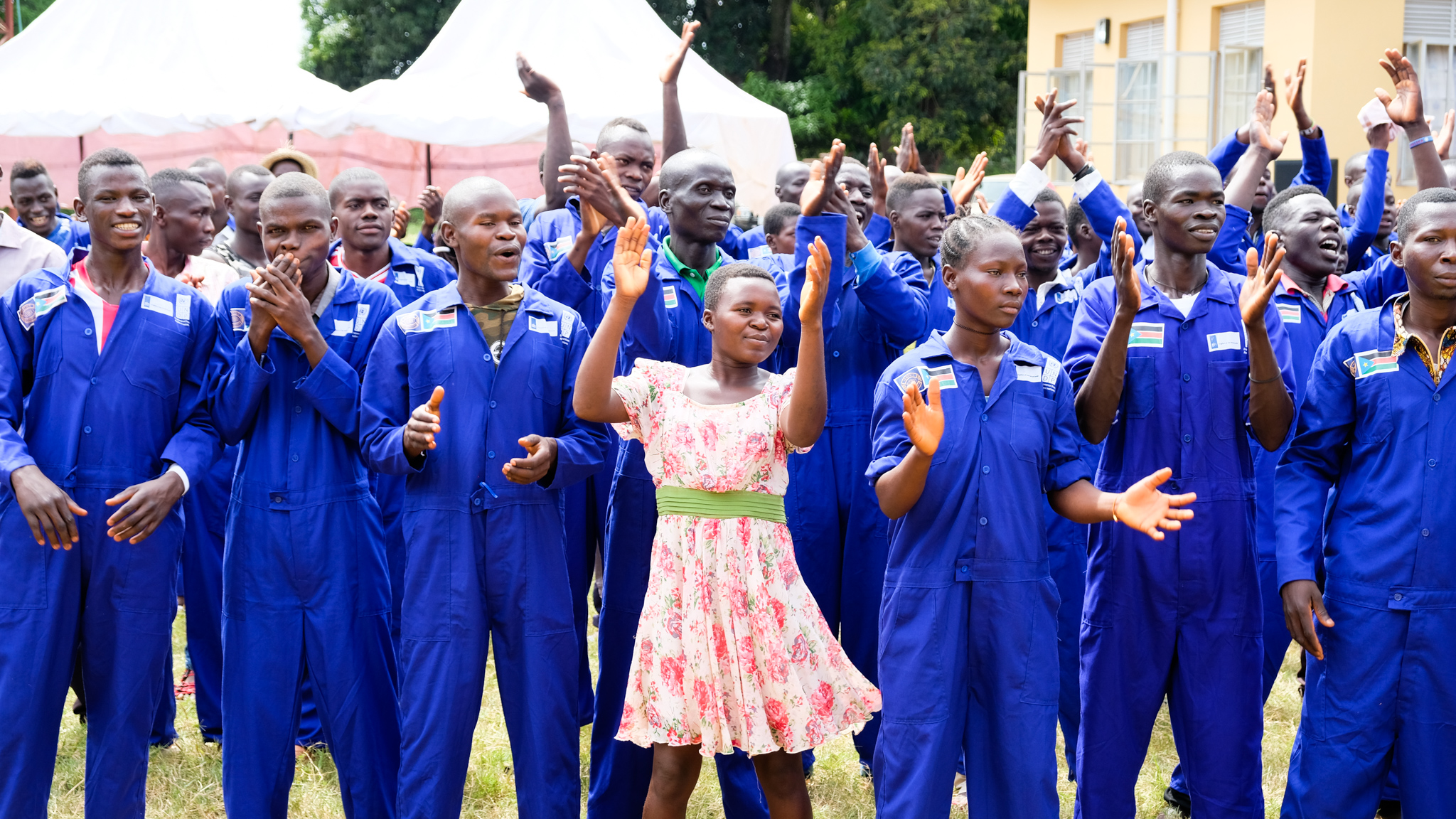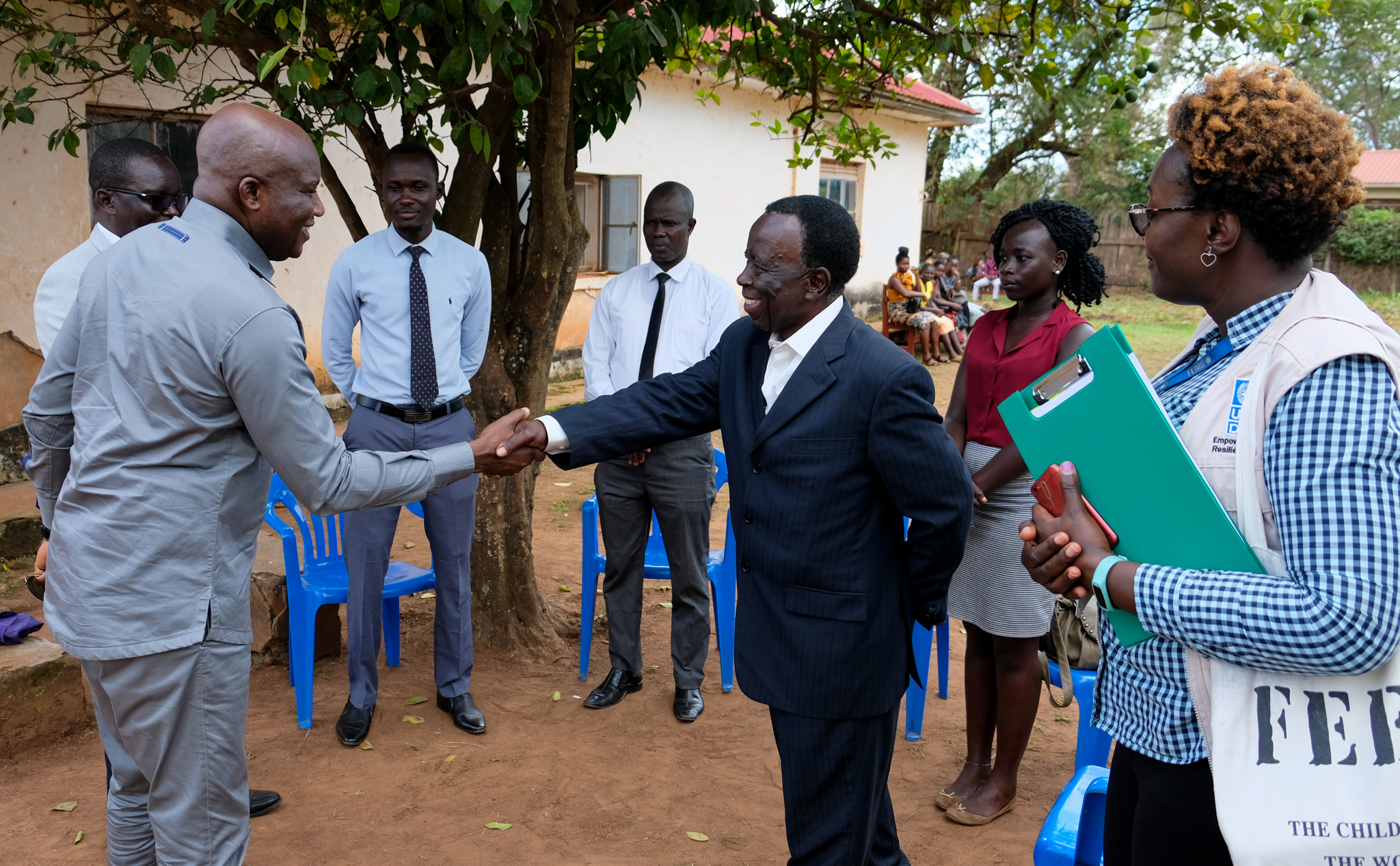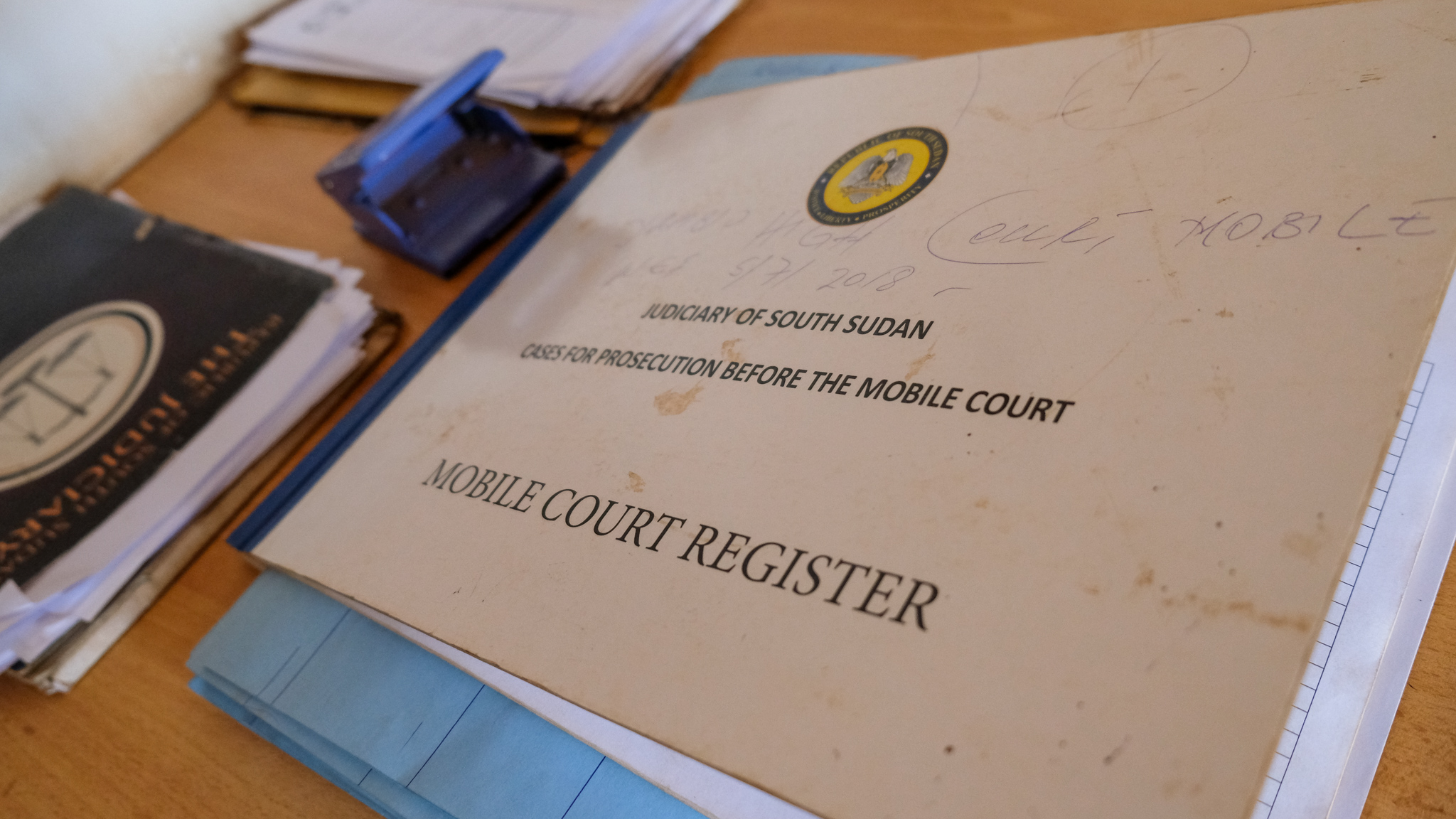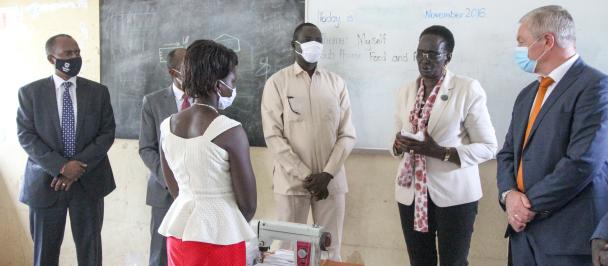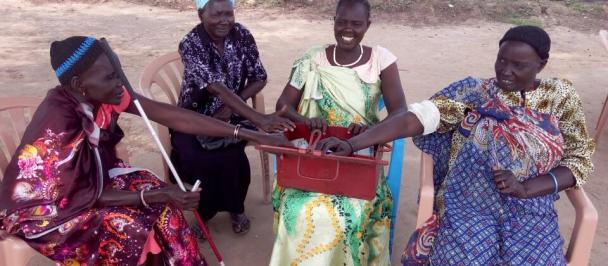Minister of Labour, Public Service and Human Resource Development Hon. Gen. James Hoth Mai; Governor of Gbudue State Hon. Daniel Badagbo; Head of Cooperation of the Embassy of the Kingdom of the Netherlands Michel Deelen; Country Representative of UNIDO Laraisse Esserhini; UNDP Resident Representative Kamil Kamaluddeen; and VTC instructors and trainees pose at the launch of vocational training courses at the Yambio Multipurpose Centre in Yambio, Gbudue State on 11 December 2019. Photo credit: UNDP
Wednesday, 11 December 2019—Youth vocational training courses in market-aligned skills, as well as justice services provided by mobile and traditional courts, were on display in Yambio, Gbudue State on Wednesday. Supported by the Kingdom of the Netherlands, these interventions reflected an area-based integrated approach in action, consistent with the key framework of the Partnership for Recovery and Resilience (PfRR) in South Sudan.
“We are honored to welcome the Netherlands on this important occasion of job creation for our young people, as a key partner to our vision of a resilient Gbudue State,” said Governor of Gbudue State Hon. Daniel Badagbo, while hosting the visit.
The high-level visiting delegation included Minister of Labour, Public Service and Human Resource Development Hon. Gen. James Hoth Mai, Head of Cooperation of the Embassy of the Kingdom of the Netherlands Michel Deelen, Country Representative of UNIDO Laraisse Esserhini and UNDP Resident Representative Kamil Kamaluddeen.
“To meet the demands of the market, you need people trained and prepared to compete. People in Yambio depend on themselves and are self-sufficient, you don’t need to look outside – agriculture, coffee, cotton, it’s all possible in this state. And when partners see you are doing things for yourself in a good way, more help will come,” said Hon. Gen. James Hoth Mai, adding that strong institutions, accountability and social justice mechanisms will build a conducive business and trade environment.
“We’re pleased to be here today to look at sustainable ways to make progress in resilience building and development in the fields of agriculture, training, and rule of law,” said Head of Cooperation of the Embassy of the Kingdom of the Netherlands Michel Deelen.
Launched at the Yambio Multipurpose Training Centre, 426 youth from all six counties of Gbudue State (Yambio, Nzara, Bangasu, Sakure, Basukangbi, and Bangazino) are participating in skills courses in tailoring, metal fabrication/welding, electrical installation, painting, auto-mechanics and more. The programme is targeting at least 2,000 youth trained in several batches. An additional 400 women are being targeted specifically through sustainable agriculture and natural resource livelihoods in Bangasu, Rii Rangu, and Gangura. The vocational training initiative shows cross-cutting partnerships.
“UNIDO is providing technical advice and guidance to the vocational training centre and raising the competencies of the course trainers in order to deliver instruction on trades and skillsets to international standards,” said UNIDO Country Representative Laraisse Esserhini, during a tour of the VTC and engagements with trainees.
The VTC trainings also have a component of entrepreneurship and financial literacy to be provided by CordAid. UNICEF and CMMB are supporting 22 young mothers enrolled in the trainings by providing a small creche area so that mothers can participate and learn while being confident their child is safe. UNHCR constructed a tent on the premises used as an additional classroom and training area.
“More than a year since the Partnership for Recovery and Resilience was launched in Gbudue State, the collaborative relationship between UNDP, the Kingdom of the Netherlands, Gbudue State, and the Ministry of Labour has paved the way for engagement and skills enhancement of the youth, especially the most vulnerable, so that they can work their way out of crisis, and link to productive activities and job opportunities,” said UNDP Resident Representative Kamil Kamaluddeen.
UNDP is working with 11 private sector companies and businesses in Yambio to provide practical on-the-job training to 107 youth, mostly graduates of the vocational courses.
Coupled with livelihoods support for young people, efforts to create a safe and secure environment through the rule of law and justice services was seen through a visit to a Victims Support Group involving 50 GBV survivors in four locations, established in collaboration with the Support Peace Initiative Development Organization. Through this group, survivors have benefited from legal aid and been referred to access protection and psychosocial support.
A customary A-Court proceeding headed by a female acting Paramount Chief, Priscilla Elikana Yambio, was also attended. More than 80 percent of cases in South Sudan are heard in traditional courts and women make up a majority of those bringing cases. Recently in the region, women in the Gangura payam advocated for representation in the traditional court that are often male dominated and were granted two slots. This is part of UNDP’s ongoing efforts to harmonize customary and statutory law, align traditional practices with human rights standards, particularly the rights of women and children.
UNDP, through its Access to Justice and Rule of Law project activities financed by the Kingdom of the Netherlands, are expanding access to justice with mobile courts which respond to parts of the country where there are case backlogs and suspects are held for extended periods of pre-trial detention. The mobile courts prioritize cases involving GBV and juveniles. Members of the delegation visited one of these mobile courts in Yambio, which began its work locally in the first week of December and will hear more than 100 cases by the end of the year. The mobile court is supported and implemented in collaboration with UNMISS Rule of Law.
In exchange with the judge and staff of the mobile court, the UNDP Resident Representative stressed the importance of the mobile courts in ensuring access to justice for the people, stressing that neither poverty nor geography should be a barrier to justice.

 Locations
Locations